When October rolls around each year I panic trying to figure out what costume I should try to cobble together at the last minute. I’m not generally a huge costume person but have close friends that are really into Halloween, so I feel as if I should put some effort in. Alas, this year there will be the annual Halloween party won’t be happening. So, what does this have to do with boardgames you ask? Well for those people who do love dressing up for Halloween, perhaps I could entice you into a hidden-role game?
Here are my top 10 hidden-role boardgames (in alphabetical order):
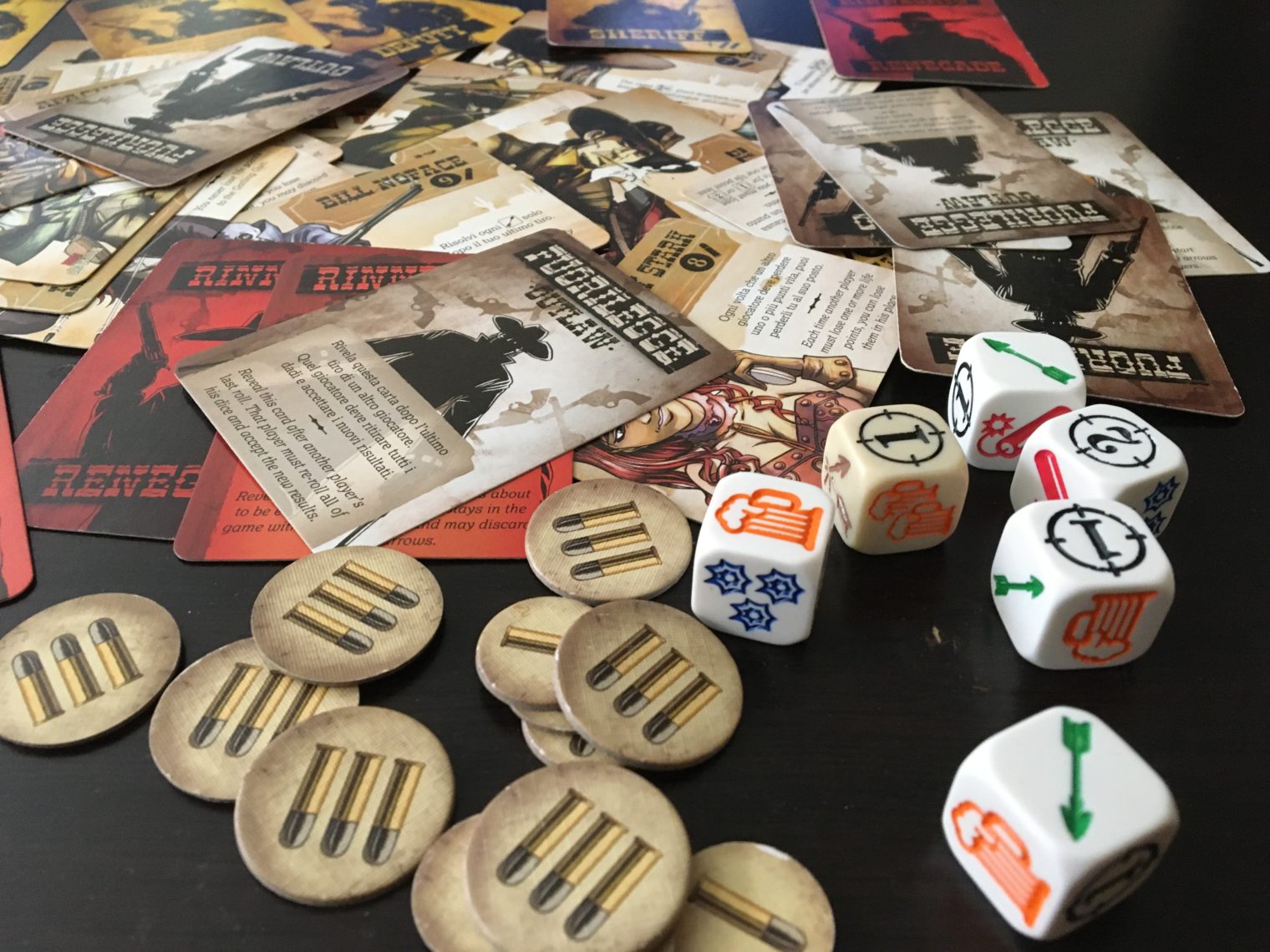
This Western theme game uses Yahtzee-like dice rolling. Each player has a character with unique powers and also a hidden role that identifies which of the three teams they are on. It has some social-deduction elements, enough so that I consider it a good entry to that genre. Each game goes pretty quickly, so the player elimination element is not that punishing (one of the expansions gives the first player eliminated a new role). I’ve had great experiences with Bang: The Dice Game with both new and veteran boardgamers.
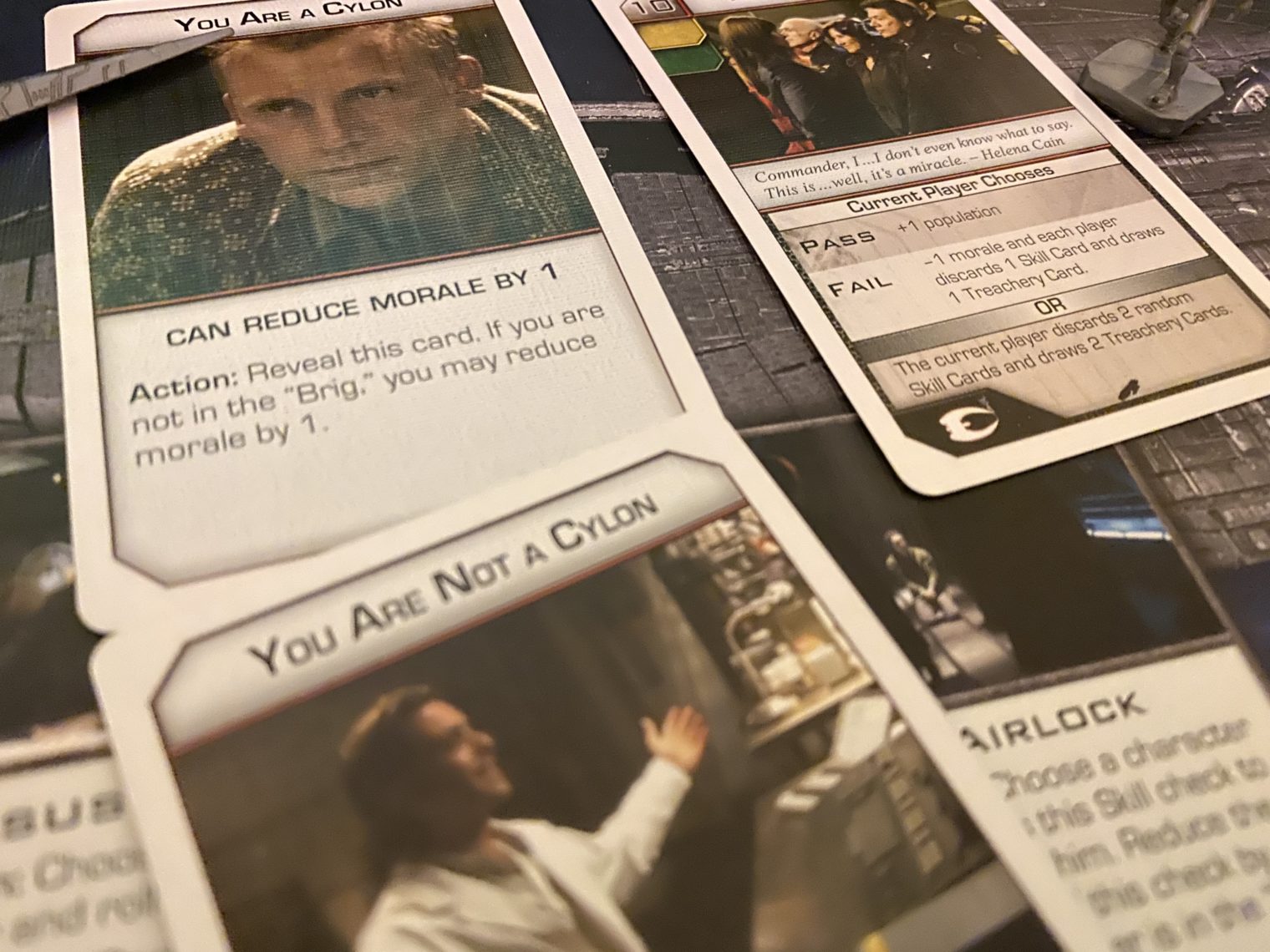
Whereas Bang is a quick-entry level game, Battlestar Galactica offers an epic hours-long experience.Based on the hit TV show, the one from the 2000s not the 1970s, it offers a thematic social-deduction, semi-cooperative game that I adore. Each player has a character from the show, but some could be cylons trying to stop the humans from finding a new home. The way the loyalty cards are disbursed, one at the start of the game and one at the half-way mark (a good use of something from the show), means a player who thought they were on the human team could turn into a cylon. I get that for some people the game is too long, but honestly while a game may go three-plus hours it never feels that long during the game.
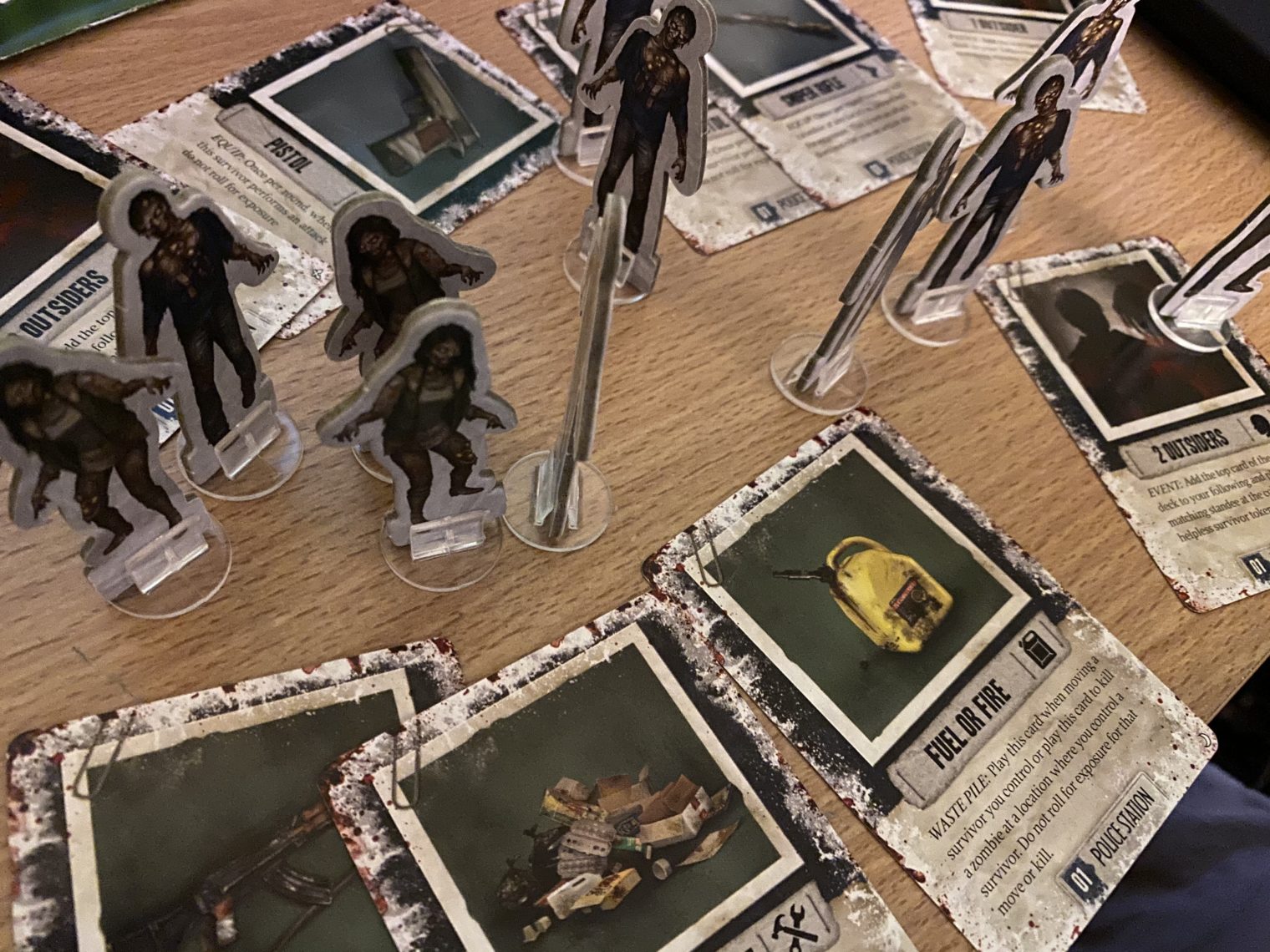
In this semi-cooperative game set in an apocalyptic wasteland the players are trying to survive and avoid getting bitten by zombies. In Dead of Winter you are playing as a team, but one of you could be a betrayer. Each player is given a separate win condition that they need to meet in addition to the overall team goal, and while only one player might actively try to thwart the team, the other players may appear sketchy because they are hoarding medicine for example, which is what their personal goal is. Those personal goals really make the semi-cooperative play in Dead of Winter shine.
Deception: Murder in Hong Kong
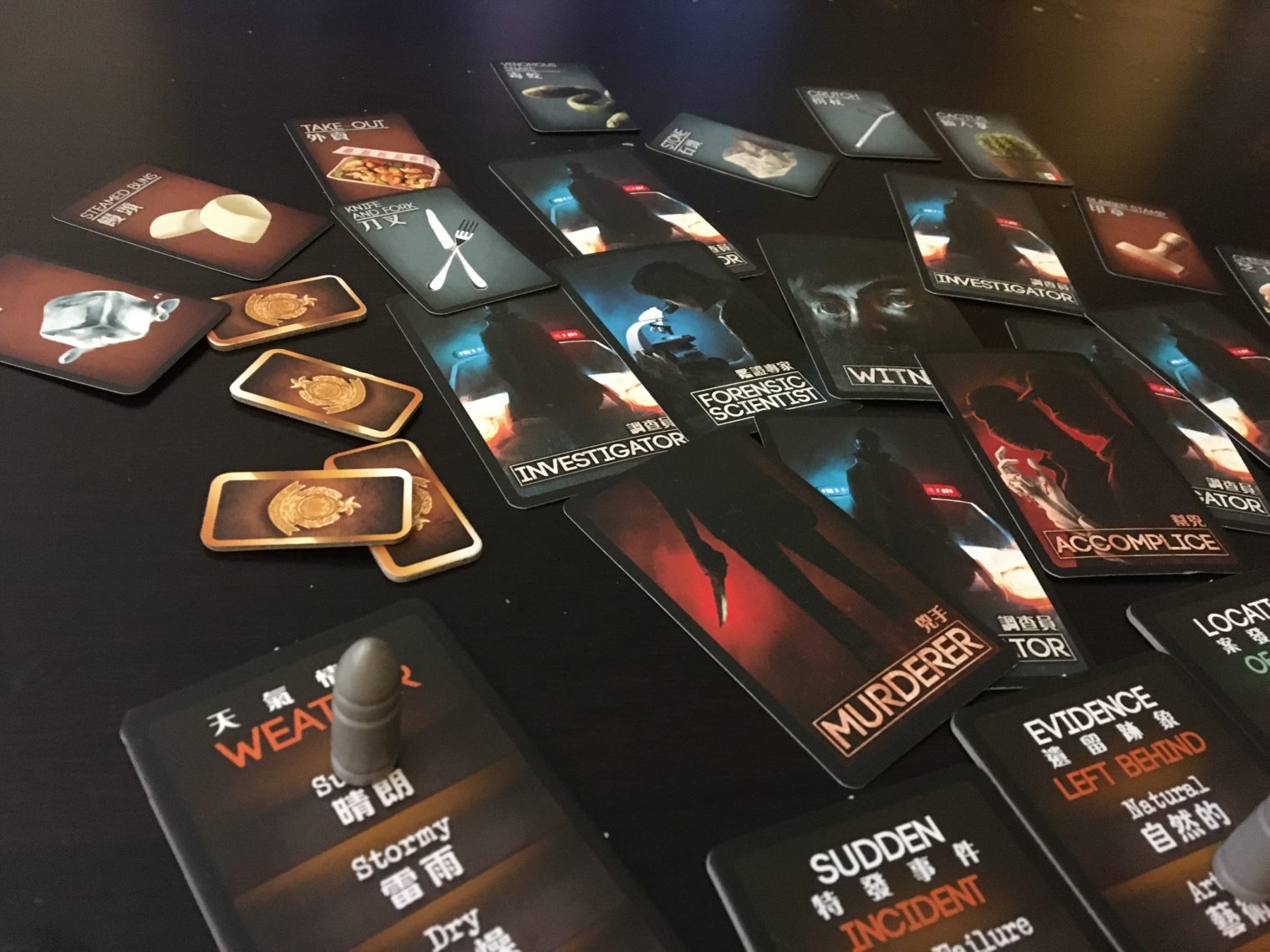
Never has a game about murder been so fun and enjoyable. In Deception one player is a forensic scientist (everyone knows who that player is), while the other players are on one of two teams, one is trying to solve the crime (investigators and witness) and the other is trying to get away with it (murderer and accomplice). There are several reasons Decepton is one of my go-to games, but when looking at the hidden-role aspect of Deception I find it works well with everyone. Many people do not feel comfortable with lying or just feel they are bad at it. In Deception if you are the murderer you don’t really have to lie. You can just play the game as if you are an investigator, trying to find the possible murder weapon and evidence.

Ahh, and you probably thought this list was going to just be games with some social-deduction bent to them, but nope. Lords of Waterdeep is a worker-placement game set in the world of Dungeons and Dragons, but don’t worry you do not need to be a role-player or know any of that world to enjoy the game. The hidden role aspect of the game is that each player gets a Lord of Waterdeep that is unknown to the other players. The Lord is revealed at the end of the game and you get bonus points based on who your Lord is. The pair of expansions for Lords of Waterdeep only add to the experience, which is a good entry-level game for the worker-placement genre, while still holding an interest for repeat plays.

I have grouped The Resistance and Avalon together because they are essentially the same game with different themes. Avalon does have some additional roles and rules, but most of those can be added via expansions to The Resistance. Either way both games are exceptional social-deduction games, and both can be easily taught to new players. In both games there are two teams, the good team, who do not know each other, that is trying to pass 3 of 5 missions, while the bad team, who do know each other, are trying to fail 3 of 5 missions. I’ve had some of my most memorable gaming experiences playing Resistance/Avalon.
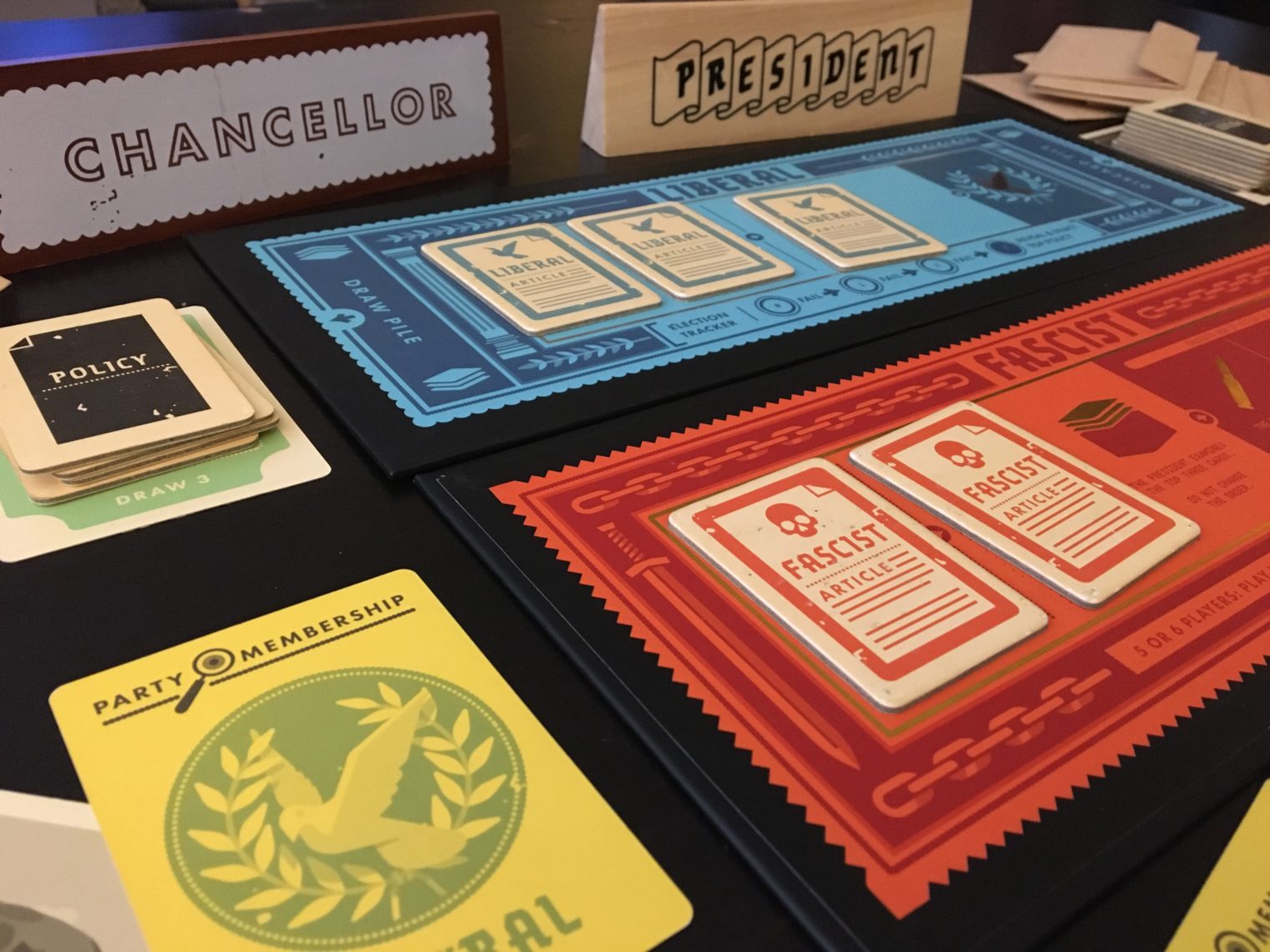
One of the few games that challenges Resistance/Avalon for supremacy in the purely social-deduction rankings. I understand the game’s name and inclusion of the Hitler role means some people will never play the game, to which I say try to find the Secret Voldermort version someone created online. I do think the game justifies its theme and title by trying to show how even liberals can be tempted to pass facist policies and how easily facism can take control of democractic governments. The game itself is a well-designed battle between the fascists and liberals to see who can control power and get their policies passed. One drawback of the game is that because there are only two people involved in each policy being chosen, compared with up to five on a team in Resistance/Avalon, in larger games some players never get a chance to be either President or Chancellor. Thankfully each game is fairly short so those players left out can get a chance in the next game.
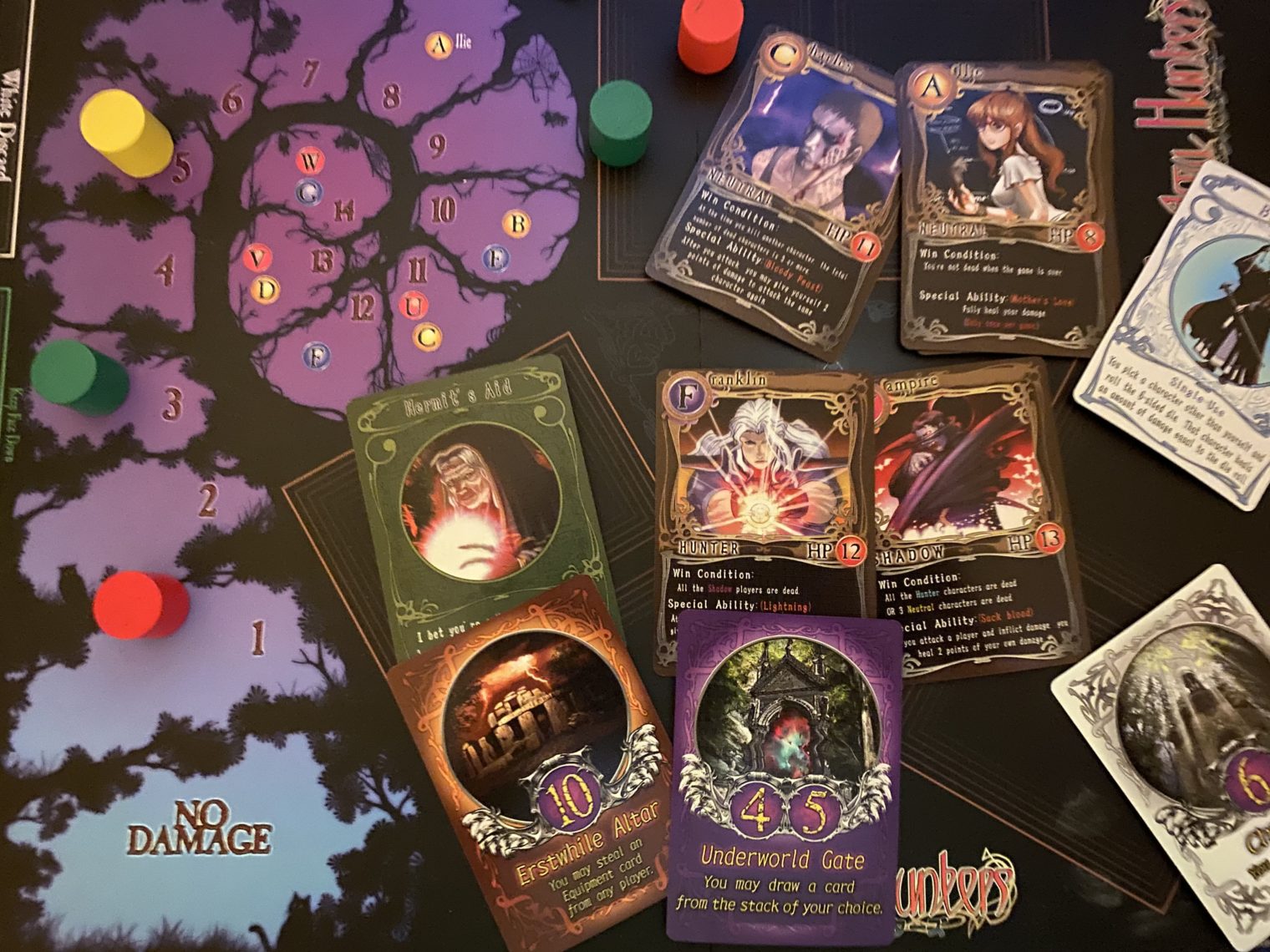
In this dice-rolling team game each player gets a different secret character that has a power and a team (Shadows, Hunters and Neutrals). Throughout the game you are using actions to figure out who is on your team and who is not, acquiring weapons and other items and attacking your foes, and sometimes your teammate who you didn’t know was your teammate. It is an older game, it was originally released in 2005, but I believe it still holds up today. It’s not a pure social-deduction game, but does have many elements of that. I am actually surprised someone hasn’t updated it with a new theme – I do like the horror theme already but I’m sure a new version would reignite interest in the game.
Another oldie but a goodie. This semi-co-operative game set in the world of King Arthur offers a tense, enjoyable gaming experience.You and your fellow knights of the round table must work together to fend off Picts and Saxons, go on quests for Excalibur and Lancelot’s Armour and battle dragons, but one of your fellow knights might be a traitor. The game forces every player to “progress evil” on their turn, so it’s not very hard for bad guys to hide and for good guys to seem bad.
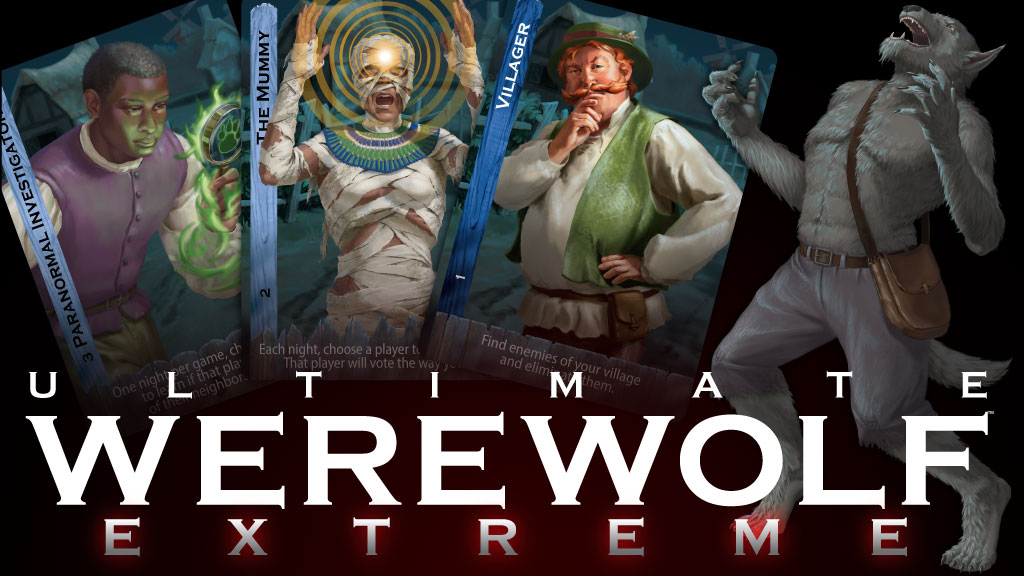
The granddaddy of them all. Werewolf has been around for ages but remains popular thanks to its versatility. One game can have a simple character set of wolves and villagers, while others can involve multiple teams and complex roles. Many of the newer social-deduction games on the market have used Werewolf as a template or at least an inspiration. The game does require a moderator, but because the game is so flexible a good moderator can create unique experience each game. I’ve been able to keep playing Werewolf via Zoom during the pandemic with The Dice Tower’s Tom Vasel hosting. Each week he has been able to come up with a new twist to keep the games different and interesting. His “robots”, which are kinda of mix of bodyguard and masons, were a great idea that I’ve never seen used before. ((Ed. note: You can listen to our podcast on the history behind Mafia and Werewolf here.))
Honourable mention:
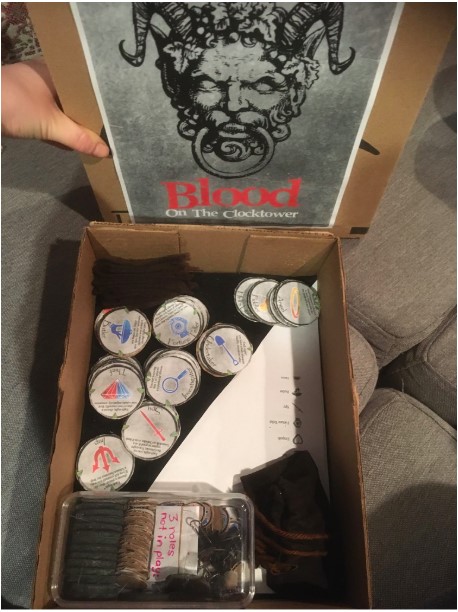
My impressions of Blood on the Clocktower have been wildly varying, but recently I realized one reason for that is because the game is highly dependent on the storyteller (think Werewolf moderator but with more ability to affect the game). There are several different setups for Blood on the Clocktower and I have only played one of them (this will be rectified very soon), so my rating of the game is still incomplete. Get back to me in a few weeks and it may have displaced a game on this list. ((Ed. note: You can read Kohava M’s in-depth look at BotC here.))
Comments
No comments yet! Be the first!